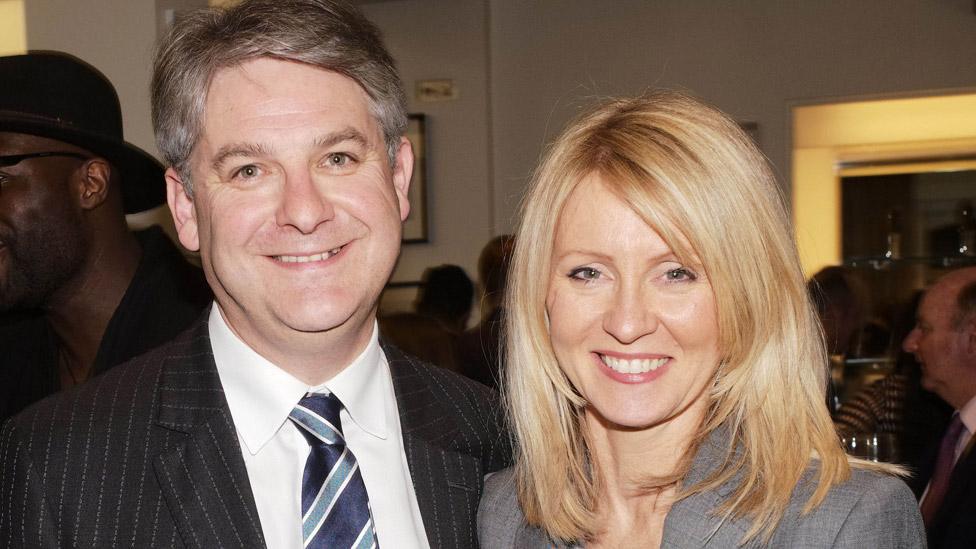Ofcom warns broadcasters over using politician hosts before general election
- Published
- comments
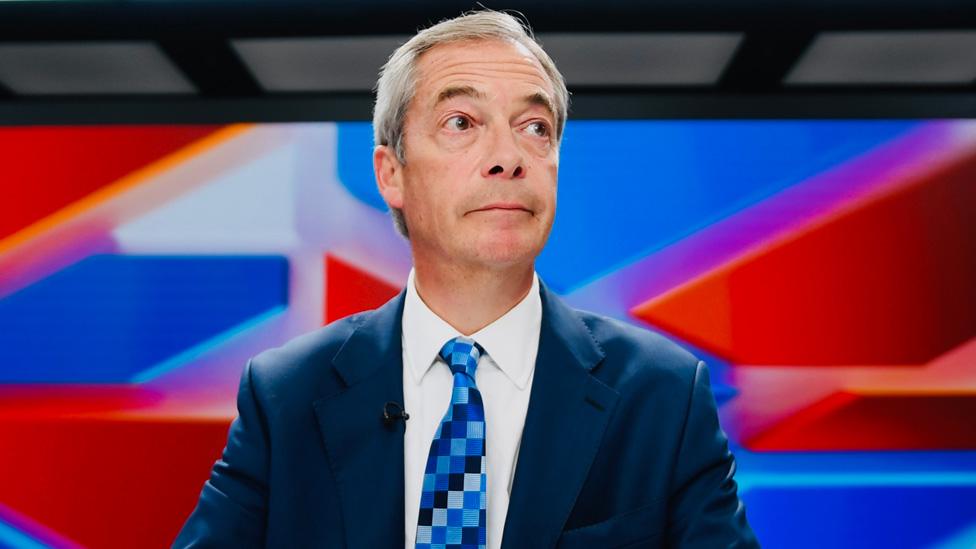
Nigel Farage hosts a show on GB News four nights a week but he is not an MP and has said he is not planning to stand in the election
TV and radio stations with shows hosted by politicians could face fines if they break impartiality rules during the next general election campaign, the UK's media regulator Ofcom has warned.
Channels including GB News and LBC have shows hosted by serving MPs.
Any candidates standing for election will not be allowed to host programmes during the campaign period, Ofcom said.
Rule breaches by other politicians hosting election programming are likely to be treated as "serious", it added.
"If broadcasters want to take the risk of having a high-profile politician, who's not standing for a seat hosting a programme, they're going to have to work bloody hard to make sure that those programmes are duly impartial," Ofcom broadcasting director Cristina Nicolotti Squires told BBC Radio 4's Media Show.
"And we will come down on them like a ton of bricks [if they aren't]."
Ofcom issued the warning as broadcasters and political parties begin to gear up for the next election, which must be held before the end of January 2025.
Nigel Farage, who hosts a GB News show, is currently honorary president of Reform UK but he is not an MP and has said he has no plans to make an eighth attempt to get elected to the House of Commons.
Ofcom also said it had also strengthened rules for normal, non-election times, which say politicians can't work as a newsreader, interviewer or reporter in news programmes "unless, exceptionally, it is editorially justified". Politicians can, however, front current affairs.
GB News has already been put "on notice" by Ofcom after the regulator ruled in March that five episodes of programmes hosted by serving Conservative MPs crossed the line between current affairs and news.
Those shows were presented by Sir Jacob Rees-Mogg, Esther McVey and Philip Davies.
"What we've done is put them [GB News] on notice that fines are on the table and that they do need to improve their record," Ofcom chief executive Dame Melanie Dawes told BBC Radio 4's Today programme on Wednesday.
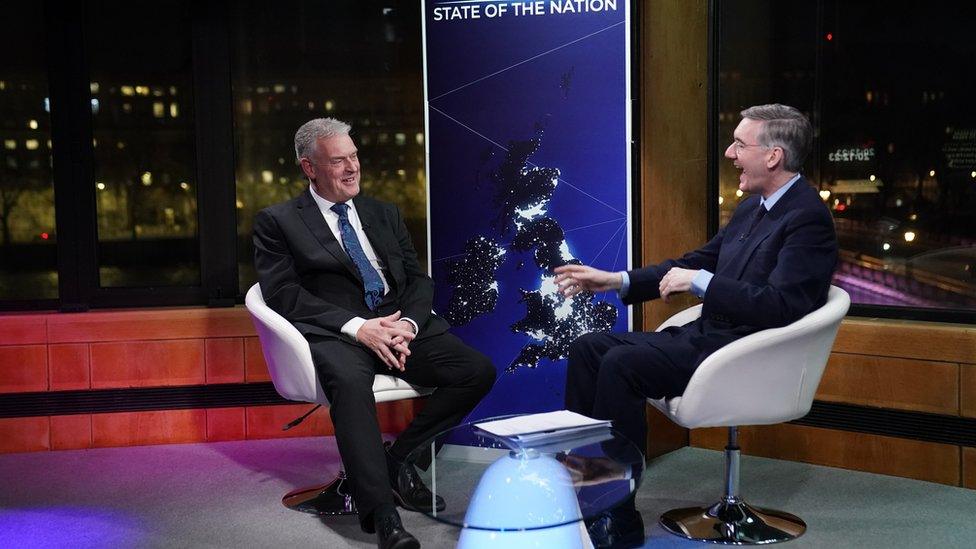
MPs Lee Anderson and Jacob Rees-Mogg are regular presenters on GB News
Ofcom has a current investigation into a programme hosted by Mr Farage on the channel.
Meanwhile, the regulator is also investigating an episode of a weekly LBC show hosted by Labour's Shadow Foreign Secretary David Lammy, and an edition of Conservative MP Jake Berry's show on TalkTV.
Dame Melanie added: "People do need to take care, particularly if they're using politicians, and especially in this election year, when the rules must be upheld."
GB News has also recruited former Prime Minister Boris Johnson to "play a key role" in its election coverage.
In a statement, Ofcom reminded broadcasters that its code "prohibits candidates in UK elections from acting as news presenters, interviewers or presenters of any type of programme during the election period".
It said: "Politicians who are not standing as candidates in a UK election can present non-news programmes - including current affairs - during election periods, provided that programme complies with all relevant code rules."
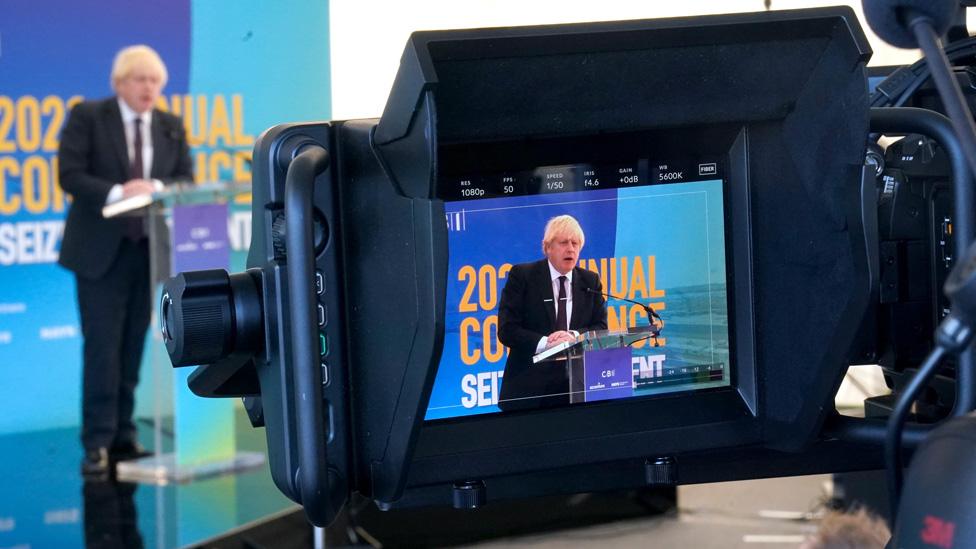
Boris Johnson will appear on GB News during the election campaign, but his role is not yet known
Ofcom's definition of a politician covers candidates, political party employees or activists, but doesn't clarify whether figures like Mr Johnson and such regular broadcasters as Ed Balls and Michael Portillo - all no longer MPs - also count.
Its guidance added: "We are likely to view breaches of the due impartiality rules in election programming presented by (non-standing) politicians as serious, and we may consider the imposition of statutory sanctions."
Possible sanctions range from ordering an apology to imposing a fine or - in the most serious cases - revoking a broadcasting licence.
Ofcom also carried out audience research, saying viewers and listeners "strongly value due impartiality" and "feel strongly that all politicians have a partisan viewpoint that would call into question the due impartiality of news if it was presented by them".
Audience members also raised "concerns" about politicians fronting current affairs programmes, but there was "no clear consensus for an outright ban", Ofcom said.
Related topics
- Published8 April 2024
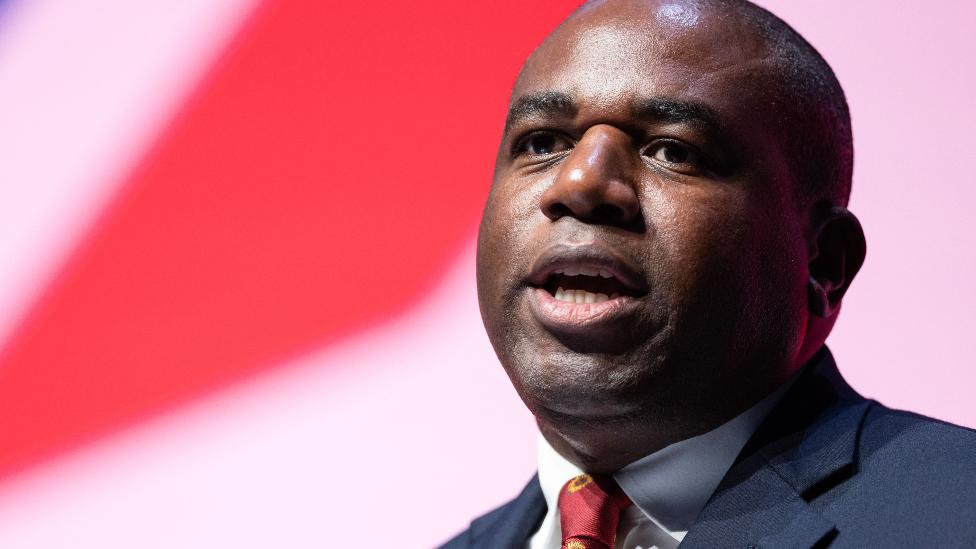
- Published18 March 2024
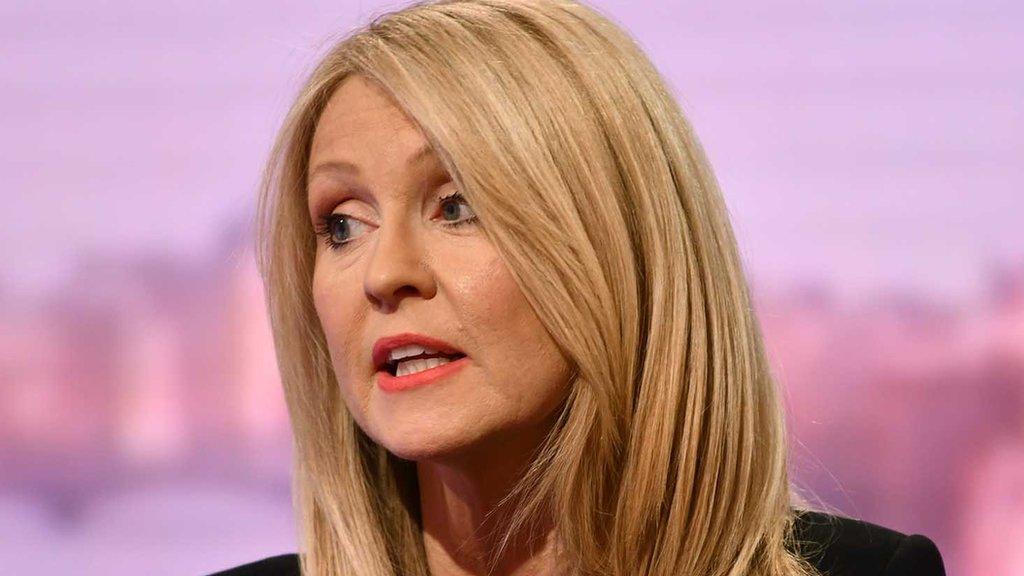
- Published19 February 2024
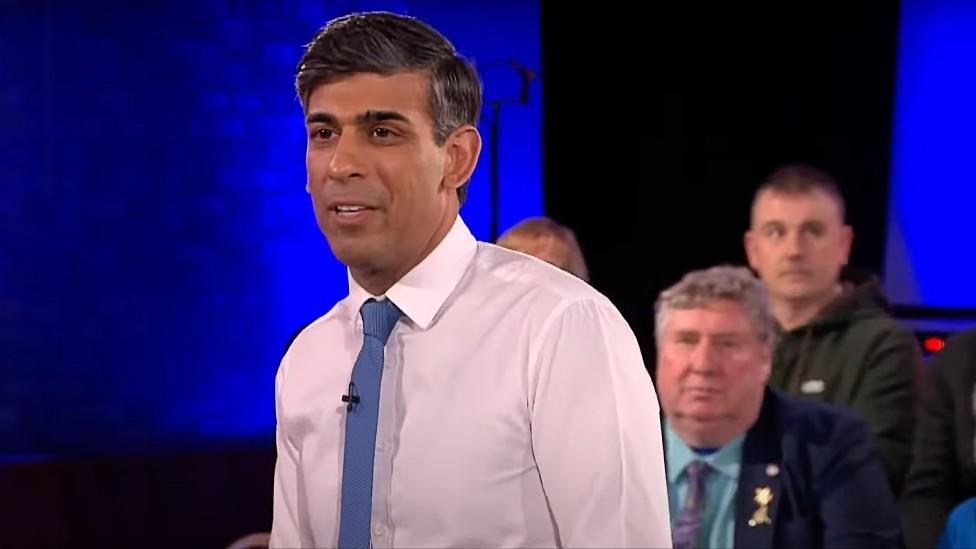
- Published12 November 2023
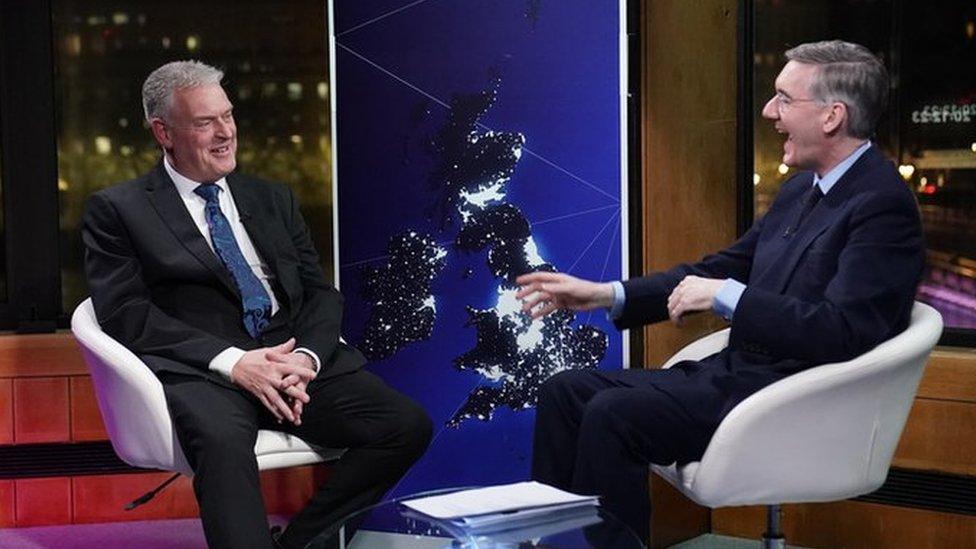
- Published27 October 2023
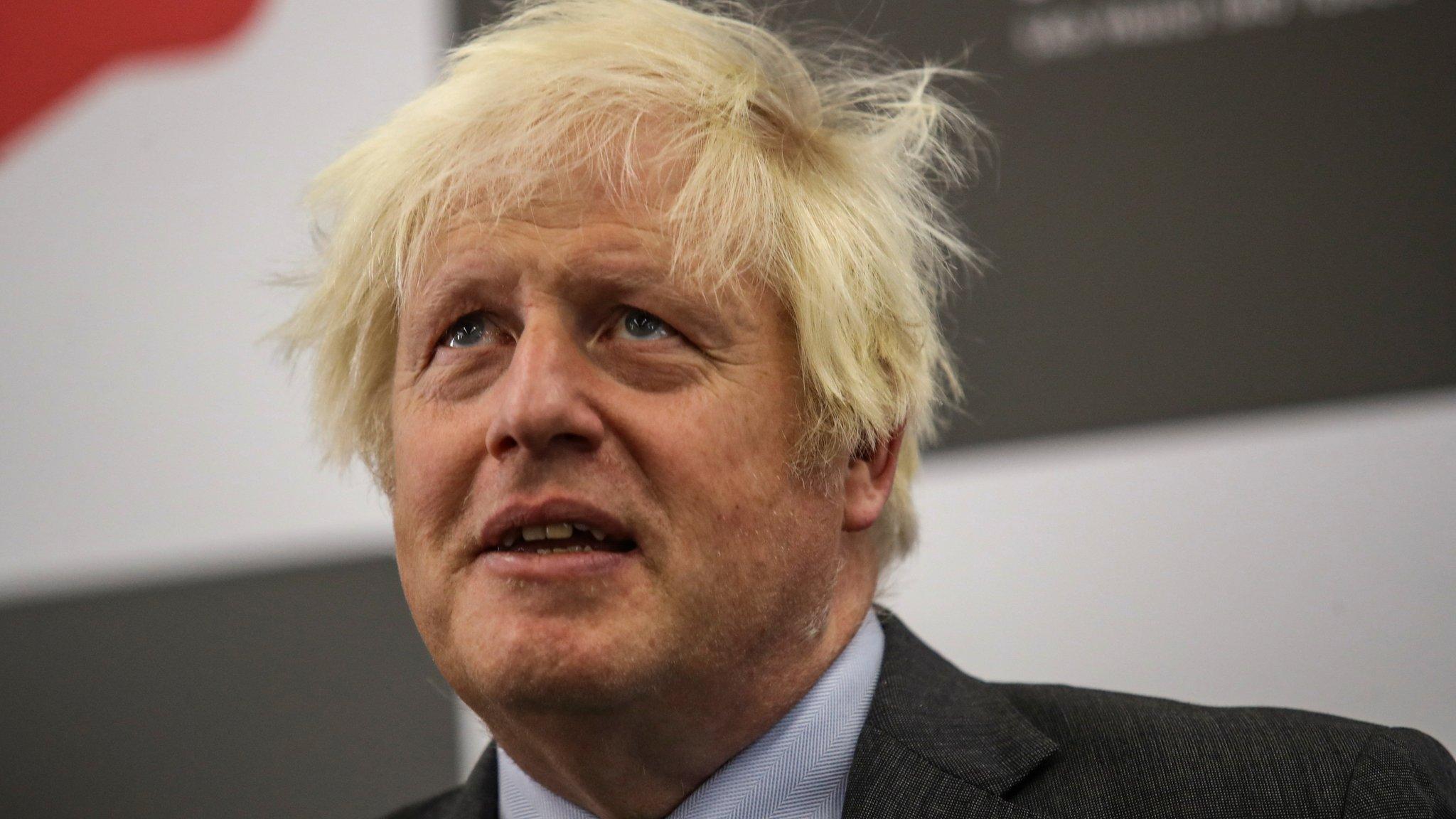
- Published18 September 2023
